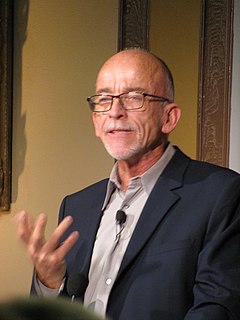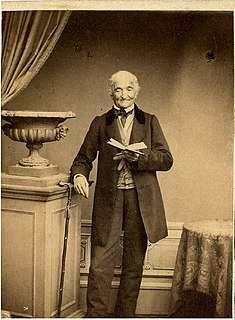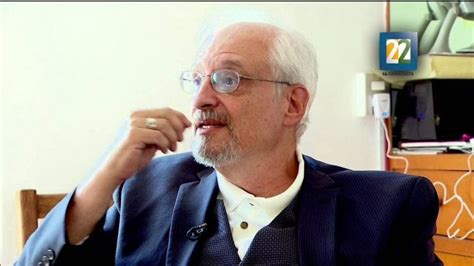A Quote by Michael Josephson
What a person says and does in ordinary moments when when no one is looking reveals more about true character than grand actions taken while in the spotlight. Our true character is revealed by normal, consistent, everyday attitudes and behavior, not by self-conscious words or deeds or rare acts of moral courage.
Quote Topics
Related Quotes
Intimacy, says the phenomenologist Gaston Bachelard, is the highest value. I resist this statement at first. What about artistic achievement, or moral courage, or heroism, or altruistic acts, or work in the cause of social change? What about wealth or accomplishment? And yet something about it rings true, finally—that what we want is to be brought into relationship, to be inside, within. Perhaps it’s true that nothing matters more to us than that.
What we call our destiny is truly our character and that character can be altered. The knowledge that we are responsible for our actions and attitudes does not need to be discouraging, because it also means that we are free to change this destiny. One is not in bondage to the past, which has shaped our feelings, to race, inheritance, background. All this can be altered if we have the courage to examine how it formed us. We can alter the chemistry provided we have the courage to dissect the elements.
By "moral discipline," I mean self-discipline based on moral standards. Moral discipline is the consistent exercise of agency to choose the right because it is right, even when it is hard. It rejects the self-absorbed life in favor of developing character worthy of respect and true greatness through Christlike service.
Does character develop over time? In novels, of course it does: otherwise there wouldn't be much of a story. But in life? I sometimes wonder. Our attitudes and opinions change, we develop new habits and eccentricities; but that's something different, more like decoration. Perhaps character resembles intelligence, except that character peaks a little later: between twenty and thirty, say. And after that, we're just stuck with what we've got. We're on our own. If so, that would explain a lot of lives, wouldn't it? And also - if this isn't too grand a word - our tragedy.
This we take it is the grand characteristic of our age. By our skill in Mechanism, it has come to pass, that in the management ofexternal things we excel all other ages; while in whatever respects the pure moral nature, in true dignity of soul and character, we are perhaps inferior to most civilised ages.
True character arises from a deeper well than religion. It is the internalization of moral principles of a society, augmented by those tenets personally chosen by the individual, strong enough to endure through trials of solitude and adversity. The principles are fitted together into what we call integrity, literally the integrated self, wherein personal decisions feel good and true. Character is in turn the enduring source of virtue. It stands by itself and excites admiration in others.
When you're in the head of the character, you feel less self-conscious. If I was just being me, I would feel so exposed and be like, 'Why is there a huge camera in my face?' But, when you're believing in the person that you're playing, you feel protected. It's about being true to that person you're playing.
Central to Jungian psychology is the concept of "individuation," the process whereby a person discovers and evolves his Self, as opposed to his ego. The ego is a persona, a mask created and demanded by everyday social interaction, and, as such, it constitutes the center of our conscious life, our understanding of ourselves through the eyes of others. The Self, on the other hand, is our true center, our awareness of ourselves without outside interference, and it is developed by bringing the conscious and unconscious parts of our minds into harmony.































